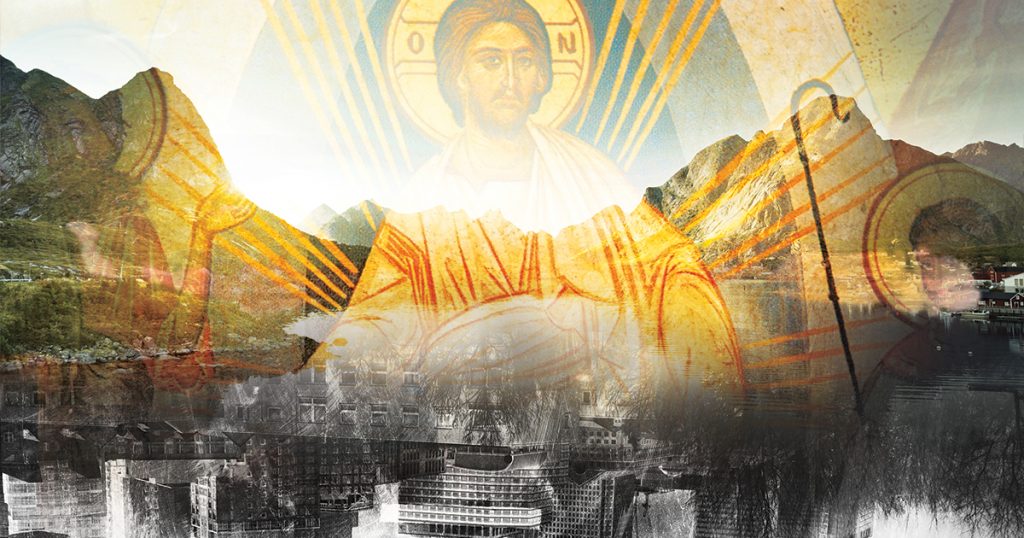
Sue Russell
Professor of Mission and Contextual Studies Published August 5, 2019Kingdom of God
When my nephew was young we used to have a ‘dumb joke’ contest. One of my favorites was, “What happens when ducks fly upside down?” “They quack up!” I think this one stuck with me because it applies to how we often view the Kingdom of God.
Many people refer to the Kingdom of God as the “up-side down” Kingdom. The teachings of living in the kingdom of God seem completely opposite from how we have learned to live in our society. However, in his book The Divine Conspiracy, theologian Dallas Willard presents the case that the Kingdom of God is not upside down living, but rather right side up living. He argues that what Jesus teaches about life in the Kingdom of God is the life we hunger for. It is the kind of life we were created for.[i]

The Kingdom of God is right side up living! It’s the world that that is upside down! No wonder so many people are tired and weary, they have spent their whole lives living upside down. And you know what happens when ducks fly upside down…they quack up! No wonder we feel like our world is cracking up. But the good news is that we are living in an age when God’s kingdom has broken into the present! We can live right side up in this upside down world. So how do we live this right-side up life?
The coming of the Spirit in Acts marked the beginning of a new age. We live in a new time, an already/not yet time. Followers of Christ receive the Spirit and the Spirit marks a new community, one unified by the Spirit. Not only are we new creations in Christ, but we also belong to a new community in Christ, one in which we share a common identity, the Spirit of God.
Paul expresses our relationships in this new community in familial terms, as brothers and sisters in Christ. We relate to people not based on their position in society, nor their race, nor their gender, but we relate to people as brothers and sisters in Christ. Siblings look out for one another and are involved in one another’s lives. One of Paul’s favorite ways of expressing this was with the reciprocal pronoun, “one another.” We build one another up (RM 14:19), bear one another’s burdens (Gal 6:2), care for one another (1 Cor 12:25), comfort one another (Col 3:13).
Our relationships are to be characterized by generous love, the kind of love that sisters and brothers have for one another. As a Westerner, I really didn’t fully understood what this really meant until I was doing Bible translation in community in S.E Asia. When we were translating the great love passage in 1 Corinthian 13:4-8, I discovered that we could not translate “love” as a noun in the Galat language[1]. We had to translate it as a verb with a subject and object. So instead of translating “Love is patient, love is kind” the Galat translation says, “A person who loves another person is patient towards them, a person who loves another person is kind towards them.” Love defines how we treat one another. This also changed my perspective about the fruit of the Spirit. The fruit of the Spirit in Galatians 5:22-25 also reflect characteristics of relationships in the Kingdom of God.
Our relationships are also to be characterized by humility. This is not the type of humility that puts oneself down rather it is an attitude that seeks the interest of others first. Although we share the same Spirit our community is not homogenous. We have different gifts, gender, positions, wealth, ethnicity, etc. Humility is not ignoring these differences but recognizing the value, dignity, worth and contribution of each member of the community regardless of their social position. Humility is an attitude in which we acknowledge that the gifts God gives us are not our own, but belong to the community to build up and serve each other.
I experienced this when I returned to my Galat village after earning my first doctorate. The translation committee met to discuss how WE were going to use OUR doctorate. Humility recognizes the gifting and resources of every member belonging to US as a community. I don’t have to compare myself to others or be envious because as a community these gifts and resources belong to US.
Finally, right side up living means that we extend these same types of relationships to everyone, not only those who are inside our community, but also to strangers, and yes even our enemies. This is totally antithetical to what the world says. But think about it. Do I respond the same way to the store clerk as I would to a brother or sister?. Or how do we communicate in social media? It is so easy to think of other people as “Those _____” fill in the blank. Or how do we treat people who work for us? What would change in our attitude and behavior if we saw people as a brother or sister? Living right side up in an upside down world might seem radical, and it is. But it is the life for which we were created and the life that we can now live in the Spirit. Not only will we find joy in living in humility and love with one another but it becomes our testimony to the world. For Jesus said, “A new command I give you: Love one another. As I have loved you, so you must love one another. By this all people will know that you are my disciples, if you love one another.” Jn 13:35.
[1] The name is changed
[i] Willard, Dallas, The Divine Conspiracy. 13.





